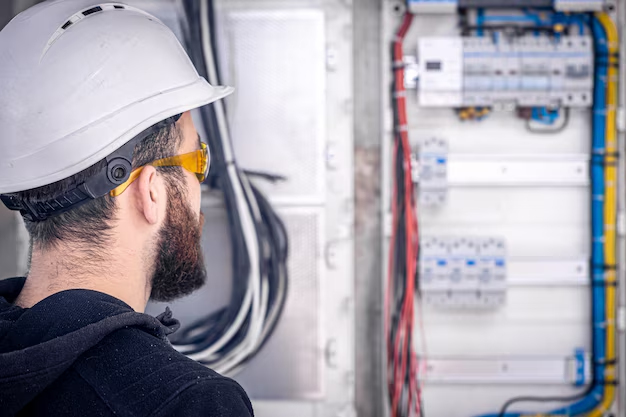Want to Become an Electrician? Here’s What You Need to Know
If you've ever marveled at the complexity and magic of electrical systems and want to become an electrician, you're embarking on a career path that promises dynamic experiences, stable income, and endless learning opportunities. Whether you dream of installing cutting-edge electrical systems in skyscrapers or ensuring homes are safely wired, becoming an electrician is a rewarding and essential profession.
Understanding the Role of an Electrician
An electrician is a skilled tradesperson who specializes in electrical systems for buildings and infrastructure. They install, maintain, and repair electrical power, communications, lighting, and control systems. The career requires a blend of technical skills and physical dexterity, and it's ideal for those who enjoy hands-on work and problem-solving.
Steps to Become an Electrician
1. Get Educated:
- High School Diploma or GED: The first step is to obtain a high school diploma or equivalent. Courses in math, physics, and electronics are particularly useful.
- Vocational Training or Apprenticeship Program: Joining a vocational school or apprenticeship program provides the foundational knowledge and hands-on experience necessary to begin your career. Programs usually last four to five years and combine classroom instruction with on-the-job training.
2. Engage in Apprenticeships:
This is where you gain real-world experience. Apprenticeships are often paid and involve working under the guidance of experienced electricians. You'll learn to read blueprints, understand the National Electrical Code, and familiarize yourself with common electrical tools and systems.
3. Obtain Licensing and Certifications:
- Pass the Licensing Exam: Most states require electricians to be licensed, which involves passing a comprehensive exam covering electrical theory, local electrical and building codes, and safety practices.
- Consider Additional Certification: While not always necessary, certifications in specialized areas (such as solar panel installation) can increase your job prospects and salary potential.
Opportunities and Incentives
Becoming an electrician opens up various career advancement opportunities, from supervisory roles to starting your own contracting business. The demand for electricians continues to grow, powered by residential and commercial development and the rise of renewable energy sources.
For aspiring electricians concerned about the financial aspect of education, several government and private initiatives are available. Consider exploring financial aid, grants, and scholarships that can ease the burden. Programs like Federal Pell Grants or state-specific scholarships can cover a significant portion of your educational expenses.
Financial Assistance and Opportunities
- Grants and Scholarships: 🎓 Look into community college scholarships or trade school grants specifically for vocational training.
- Apprenticeship Income: 🛠️ Many apprenticeships offer a salary, giving you the chance to earn while you learn.
- Government Programs: 🏛️ Federal and state aids, such as the Workforce Innovation and Opportunity Act (WIOA), provide funding for vocational training.
- Educational Loans: 💳 Consider low-interest federal student loans tailored for technical and trade schools.
- Veteran Benefits: 🪖 If you are a veteran, the GI Bill offers substantial educational benefits applicable to trade programs.
Choosing to become an electrician could be the spark for a successful and fulfilling career. As you wire your way into the field, leverage every educational and financial tool available. Remember, the path to becoming a skilled electrician is not just about learning a craft; it's about investing in a secure and prosperous future.

